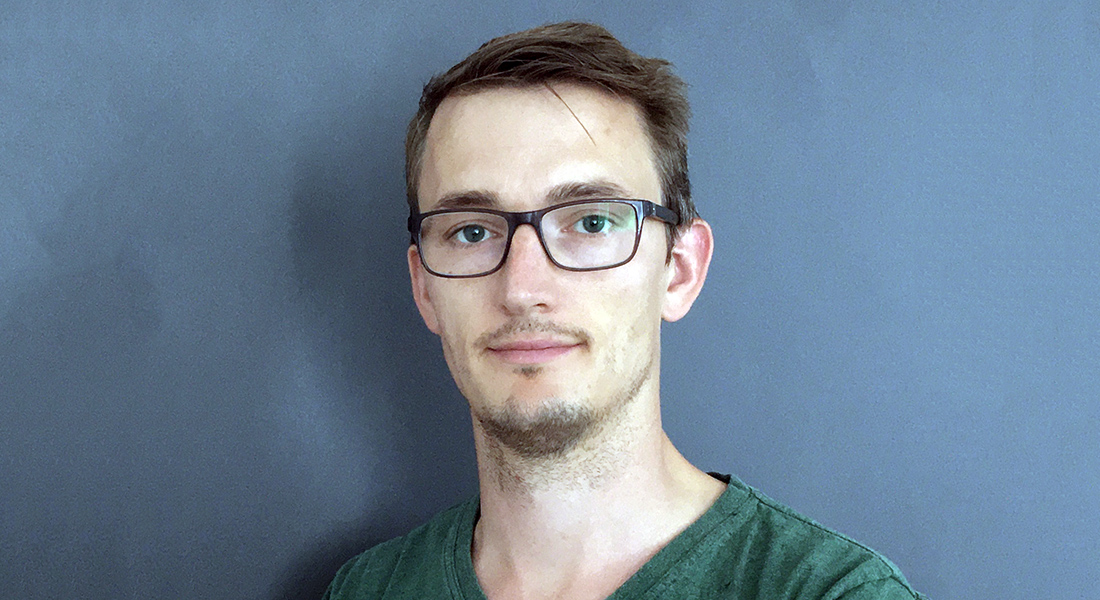Malte Nielsen wins the 2019 Edlund-DMF Thesis Prize
A thesis on statistical problems in DNA identification has been assessed by the Danish Mathematical Society as the country's best thesis submitted in 2019. On 11 September [POSTPONED!], Malte Bødkergaard Nielsen will be presented with the Edlund-DMF Thesis Prize of DKK 15,000.

Six theses from Aarhus, Aalborg and Copenhagen were nominated for the Edlund-DMF Prize. Malte Bødkergaard Nielsen receives the award for his thesis Use of Graphical Models in Analysis of DNA mixtures, which he wrote under the supervision of Therese Graversen and Steffen Lauritzen, Department of Mathematical Sciences, University of Copenhagen.
- It was an extremely difficult task to nominate a winner among the six excellent theses. The members of the committee agree, however, that the thesis from Malte Bødkergaard Nielsen stands out especially for its superb presentation of both the statistical theory and the scope of application of the thesis. This is a very solid work that has obvious interest for a wide range of researchers, not only in the mathematical disciplines, says the chairman of the Danish Mathematical Society's assessment committee, Professor Vagn Lundsgaard Hansen.
DNA identification
The evaluation committee justifies its recommendation as follows:
“Identifying people based on their DNA profile has proven to be an extremely useful tool in criminal cases. Essentially, a person's DNA profile is characterized by the lengths of the so-called STR (Short Tandem Repeat) markers, which are short, immediately in the extension of each other, repeated DNA sequences. In a criminal case where you want to use DNA identification when solving a crime, the DNA trace you have available is often a complicated mix of several people's DNA profiles. It is a statistical problem to find the most likely combination of DNA profiles in such a mix. And this is precisely the subject of Malte's thesis. The thesis describes a representation of the problem in the form of a graphic model of a Bayesian network, which was proposed by the thesis supervisors.
Malte provides a very exciting, independent and highly readable presentation of both the biological and the mathematical aspects of DNA identification, and with fine rigour and precision in the technical details. The theory is used to analyze data from an English murder case”.
From DNA to cardiac arrest
After graduating, Malte worked as a statistician at the Center for Clinical Research and Prevention at Frederiksberg Hospital. In June 2020, he started as a PhD student at the Department of Mathematical Sciences at Aalborg University. They collaborate with the Department of Forensic Genetics at the University of Copenhagen, which co-finances the PhD scholarship.
- In the Heart Project, which my PhD is circulating around, we look at the amount of RNA and methylated DNA in cardiac tissue from the deceased, which is examined for sudden cardiac death caused by genetic and epigenetic changes. My task is to develop correct and efficient mathematical models for the analysis of the large amounts of epigenetic data, Malte explains.
- My interest in genetics was aroused in the work on my thesis, and it is definitely a good start to the PhD project that I already have a knowledge of genetics in a forensic context, says Malte.
Lectures, awards and reception
Due to the increase in infection rates, the University of Copenhagen has cancelled all social activities until the end of September 2020. Therefore, the presentation of the Edlund-DMF thesis award has been postponed until later in the autumn.
The Edlund-DMF Thesis Prize has been awarded every year since 2008 and has been sponsored by Edlund A/S throughout the years. Edlund A/S provides solutions for the management of life insurance and pension portfolios.
Read more about the Prize on the Danish Mathematical Association's website
Topics
Contact
Malte Bødkergaard Nielsen
Mail: maltebn@math.aau.dk
Chairman of DMS Steen Thorbjørnsen
Mail: steenth@math.au.dk
Phone: 2047 9074
Thesis supervisor Professor Steffen Lauritzen
Mail: lauritzen@math.ku.dk
Phone: 3533 7597
